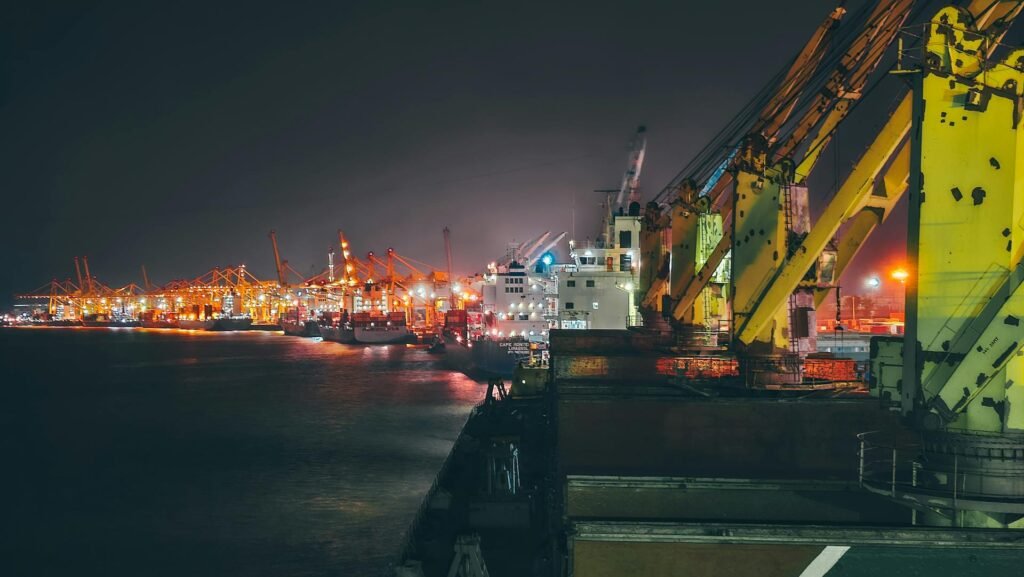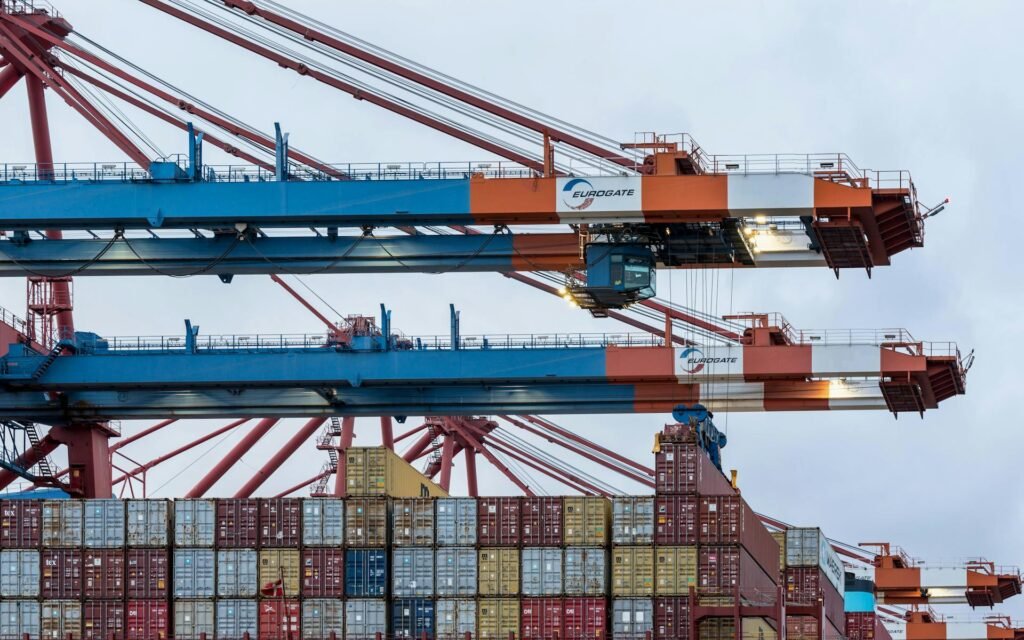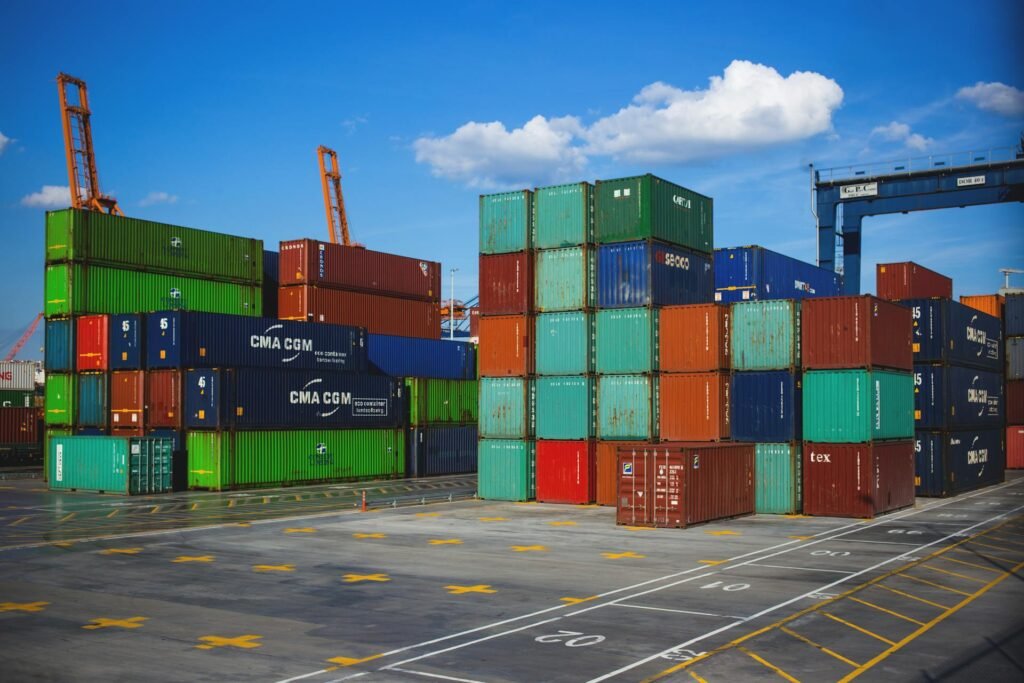
Introduction
The complexity of international trade logistics is well-known. The processes of customs clearance and tax payment are key aspects that often pose challenges and difficulties for traders. In this context, “Delivered Duty Paid” (DDP), or “double clearance and tax-inclusive” as it’s commonly called, emerges as a service model that simplifies procedures and reduces risks for customers. It has become an important choice in international trade logistics, offering great convenience and security for both buyers and sellers.
Core Concept Analysis
What Does Delivered Duty Paid Mean?
In DDP, “double clearance” refers to customs clearance in the exporting country and customs clearance in the importing country. For customs clearance in the exporting country, logistics providers need to prepare customs declaration documents and declare goods information in accordance with the laws and regulations of the exporting country to complete the export customs procedures. After the goods arrive in the destination country, the logistics provider is responsible for paying duties, value-added tax and other fees to complete the import customs release, which is customs clearance in the importing country.
“Tax-inclusive” means that the logistics provider undertakes the import duties, value-added tax and other taxes and fees in the destination country (usually referring to regular taxes and fees). That is to say, the freight already includes all the taxes and fees that may be incurred in the importing country, and the recipient does not need to pay additional taxes.
Overall, DDP means that the logistics service provider is responsible for the export customs declaration of the goods in the country of departure and the import customs clearance procedures in the destination country, and undertakes to pay the duties, value-added tax and other taxes and fees generated in the import link of the destination country, and transports the goods to the designated place in the destination country (such as a port, airport or warehouse).
The English of Delivered Duty Paid
The most commonly used English term for “Delivered Duty Paid” is “DDP”. It comes from “Delivered Duty Paid” in the “International Commercial Terms” (Incoterms). In Incoterms, DDP emphasizes “delivery after payment of duties”. It means that the seller is responsible for delivering the goods to the location specified by the buyer and bears all costs and risks until the goods are delivered, including shipping costs, insurance, customs duties and taxes.

In-depth Analysis of Service Scope
Is Delivered Duty Paid the Same as DDP?
Essentially, “Delivered Duty Paid” is a common manifestation or popular term of the DDP clause in practice. The core service content of “Delivered Duty Paid” (responsible for two-way clearance, payment of destination country taxes and fees, and assumption of risks and costs until the agreed place) is completely in line with the definition of DDP. It can be said that “Delivered Duty Paid” is the popular name in the market for DDP transportation services. However, it should be noted that in practice, there may be slight differences in logistics providers’ understanding of the scope of “tax-inclusive”, so it is necessary to clarify in the contract.
What Does Delivered Duty Paid to Door Mean?
This is an extension or upgrade of the “Delivered Duty Paid” service. On the basis of completing “Delivered Duty Paid” (that is, completing import customs clearance and paying taxes and fees), the logistics service provider is also responsible for transporting the goods from the port/airport/warehouse in the destination country to the final destination specified by the customer through local transportation (such as by truck).
This emphasizes the additional convenience brought by the “to door” service and the scope of costs included (local transportation costs, possible unloading at the door, etc.). It provides customers with a more worry-free and convenient one-stop service, allowing them to receive goods directly at their designated locations without having to worry about subsequent transportation and delivery issues.
Delivered Duty Paid Channels
The main logistics transportation modes (channels) to achieve the “Delivered Duty Paid” service are as follows:
- DDP by Sea: This is the most commonly used method, suitable for bulk cargo. It has a relatively low cost and is suitable for transporting a large number of goods over long distances. Although the transportation time is relatively long, it is an economical choice for some goods that are not very time-sensitive.
- DDP by Air: It is suitable for high-value and urgently needed goods. It is fast, but the cost is high. This mode is often chosen for goods that require quick delivery, such as some high-tech products, fashion items with a short sales cycle, or goods needed for emergency use.
- DDP by Rail: Especially suitable for routes such as the China-Europe Railway Express, the timeliness and cost of which are between sea and air transport. It has the advantages of stability and safety, and is gradually becoming an important choice for international trade logistics between Europe and Asia, facilitating the transportation of goods between different regions.
- DDP by Courier (e.g., DHL, FedEx): Usually for small parcels, the door-to-door service is highly integrated. The express company collects and pays customs duties and taxes on behalf of the customer (essentially also DDP). This mode is convenient and fast, suitable for sending some small items, samples or documents, providing customers with a convenient way to send and receive goods.
The choice of different channels depends on factors such as the nature of the goods, timeliness requirements and budget. For example, if the goods are large and bulky with low timeliness requirements, DDP by sea may be a good choice; if they are high-value and urgently needed, DDP by air is more appropriate; for some goods transported between Europe and Asia with moderate timeliness requirements, DDP by rail can be considered; and for small parcels, DDP by courier is often the preferred option.
Risks of Delivered Duty Paid
Analysis of Core Risk Points
- Risk of Tax-inclusive Scope: “Tax-inclusive” usually refers to regular customs duties and value-added tax. However, due to sudden changes in the destination country’s policies (such as anti-dumping duties, punitive duties, or a significant increase in tax rates) or disputes over the classification/valuation of goods by the customs, additional taxes and fees may be incurred, which the supplier may not cover or may charge extra for.
- Risk of Customs Clearance Delay: Strict customs inspections in the destination country, document issues (even if the supplier is responsible, untimely or incorrect information provided will lead to delays), and the risk of goods being detained due to sensitive goods (such as those with electricity or infringing goods). Delays may result in storage fees and customer claims, increasing costs and affecting business operations.
- Trap of Destination Port Charges: In addition to taxes and fees, there may be high miscellaneous charges at the destination port (such as terminal handling charges, warehouse rent, etc.). It is necessary to clearly define in the contract whether these charges are included to avoid unexpected costs.
- Risk of Ownership and Payment for Goods: The supplier controls the customs clearance process, and there is a risk of transfer of ownership of goods when the payment for goods has not been settled. This risk needs to be avoided through contracts and payment methods to ensure the security of both parties’ rights and interests.
- Risk of Supplier Qualifications: Choosing an unreliable logistics provider may lead to insufficient customs clearance capabilities, tax evasion resulting in seizure of goods, or even the provider absconding with the money. Therefore, it is very important to choose a logistics provider with good reputation and strong strength.
- Risk of Cost Accounting: The supplier’s quotation is usually based on estimated taxes and fees, and the final cost may vary from the estimate, especially when tax rates fluctuate greatly, which may lead to cost overruns and affect profit margins.
- Compliance Risk: In order to “include taxes”, the supplier may adopt grey customs clearance methods, which brings legal risks. Once discovered, it may lead to fines, seizure of goods and other consequences, causing serious losses to the enterprise.

Summary and Suggestions
To sum up, “Delivered Duty Paid” (DDP) has important core value and application scenarios in international trade. It simplifies the process for customers and transfers the risks of customs clearance and tax payment. And “Delivered Duty Paid to Door” is a more convenient option, providing customers with a more comprehensive one-stop service.
However, the following key points need to be noted:
- It is of utmost importance to choose a supplier with good reputation and strong customs clearance capabilities in the destination country. A reliable supplier can ensure the smooth progress of the transportation process and reduce various risks.
- The contract must clearly define the service scope of “Delivered Duty Paid” (especially the specific types of taxes included in “tax-inclusive”, whether destination port miscellaneous charges are included, whether it is door-to-door), cost composition, liability division, risk assumption (especially policy changes and customs disputes), payment method and terms of transfer of ownership of goods. Clear contract terms can help both parties clarify their rights and obligations and avoid potential disputes.
- Understand that “tax-inclusive” does not mean covering all unknown costs, and pay attention to policy risks. Keep abreast of changes in the destination country’s policies and regulations to avoid sudden increases in costs due to policy adjustments.
- For high-value or sensitive goods, it is recommended to purchase transportation insurance to reduce the risk of loss or damage to goods during transportation.
In general, “Delivered Duty Paid” is a powerful tool for cross-border e-commerce and small and medium-sized enterprises to expand the international market. However, it must be operated with caution. By correctly understanding and using DDP, and choosing the right logistics provider and contract terms, enterprises can better seize business opportunities in the international market and achieve better development.





